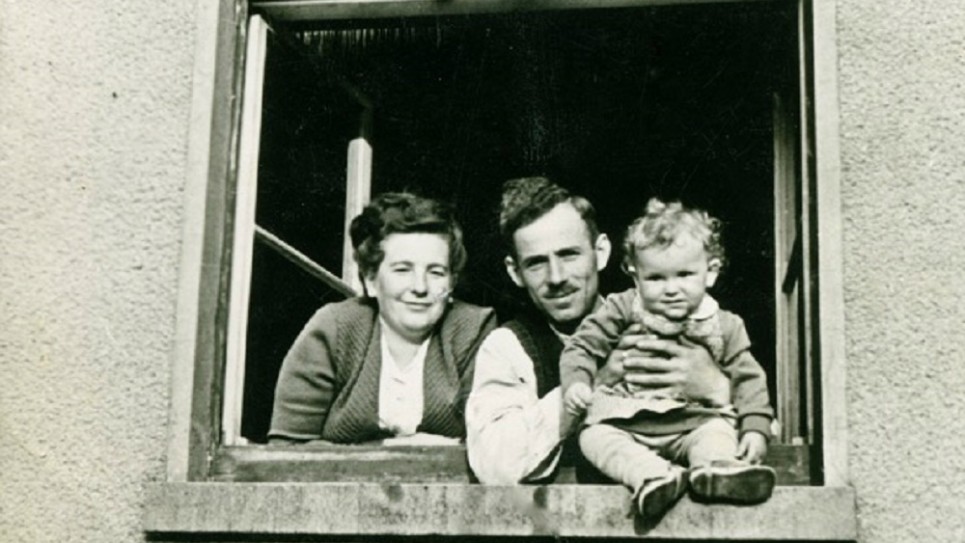Gathered for 70th anniversary of concentration camp’s liberation, second-generation survivors born in DP camp discuss their unique shared identity.
BERGEN-BELSEN, GERMANY — “It’s called rote grütze. I remember eating it all the time here as a young child,” said Aviva Tal as she tucked into the German fruit pudding as brightly red-colored as her stylishly cropped hair. When she finished her first portion she got up to get more from the buffet table, bringing several little glasses of the pudding, topped with vanilla cream, for the others at her table to enjoy, as well.
Tal, a Bar-Ilan University Yiddish professor in her late 60s, was eating lunch with some close friends of similar age under a large tent next to the museum at the Gedenkstätte Bergen-Belsen (Bergen-Belsen Memorial Site) late last week.
They had all come to commemorate the 70th anniversary of the liberation of Bergen-Belsen. The lunch was a break during a full day of touring the concentration camp site, as well as the neighboring displaced persons camp (now a British NATO base) ahead of the official commemoration ceremonies that took place on April 26.


